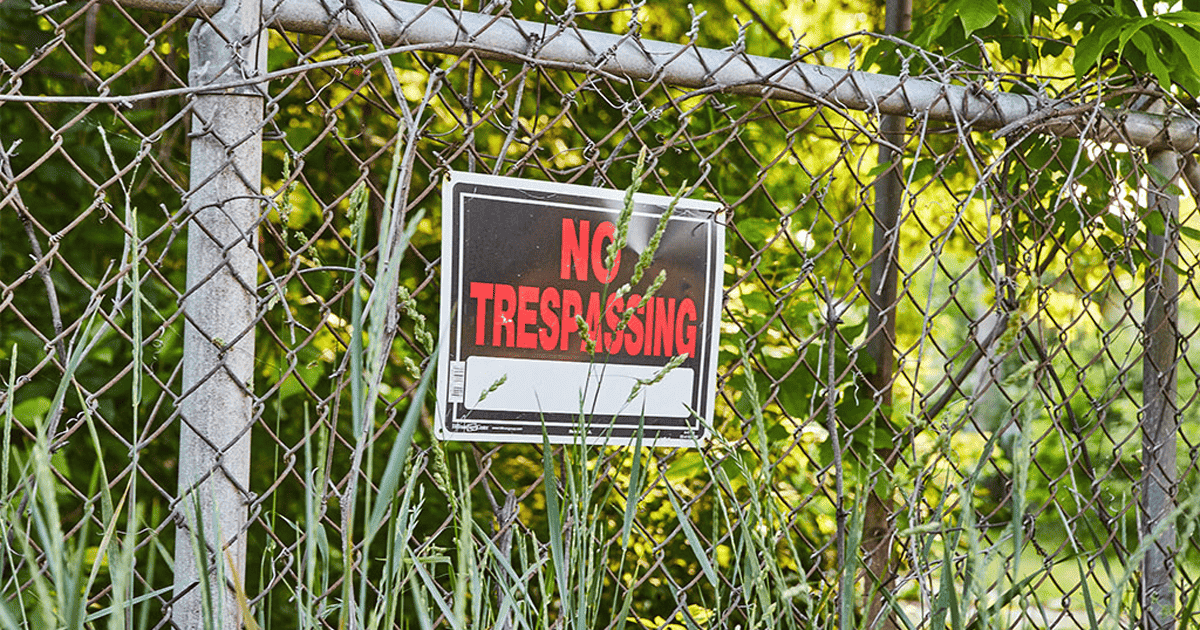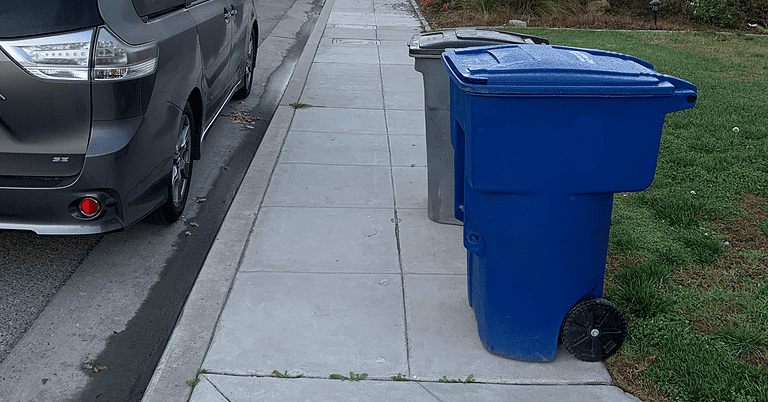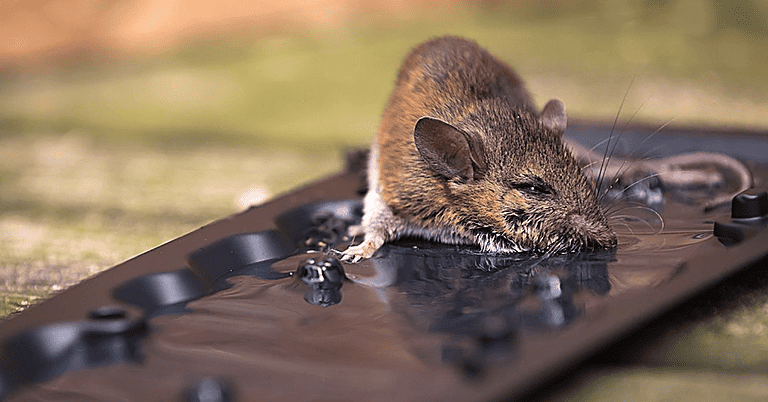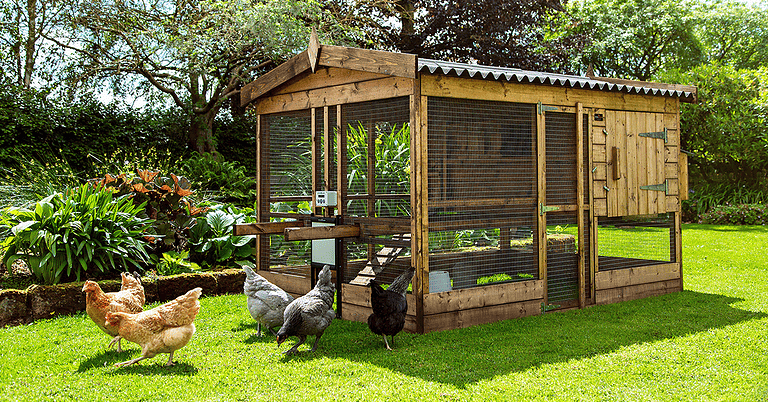Can HOA Enter Your Backyard
Are you curious whether your HOA can enter your backyard without your permission? This article will explore the authority and procedures surrounding HOA entry into a homeowner’s backyard.
You’ll discover the top 5 HOA backyard rules you need to know, how these rules are enforced, and the role of HOAs in maintaining property values.
We’ll also delve into your legal rights as a homeowner in an HOA community. So let’s dive in and uncover what you need to know about your backyard and your HOA. (Read Can HOA Force You To Keep Garbage Cans In Garage)

Can The HOA Enter Your Backyard Without Your Permission?
Are you curious whether the HOA can enter your backyard without your permission?
In this discussion, we will explore critical points such as understanding the homeowner’s property rights, when the HOA may legally enter a homeowner’s property, and whether it is considered trespassing if they do. Additionally, we will delve into how HOA board members can control backyard access in HOA communities and the fine line between state law and HOA rules.
Understanding The Homeowner’s Property Rights
Homeowners can understand and protect their property rights within an HOA. Knowing the rules regarding HOA’s entry into your backyard is essential. While they generally have the authority to enter a homeowner’s property, some restrictions and requirements must be followed. HOA may not allow entry without permission or notice, but they can take pictures or inspect for rule violations in certain circumstances.
Knowing these HOA backyard rules is crucial for homeowners.
When HOA May Enter A Homeowner’s Property
Knowing when they may enter your property is essential when considering the circumstances. The HOA board members have the authority to enforce rules and regulations regarding your backyard according to the governing documents. They can control certain aspects of your backyard, such as appearance and activities, to maintain harmony and property values within the community.
However, any entry into homeowners’ properties must be done by the HOA’s governing document and state laws.
Is It Trespassing If HOA Enters Your Backyard?
Understanding the legality of HOA entering your backyard without permission is essential. HOAs can enter a homeowner’s property, but usually only in emergencies, for maintenance, or to address rule violations.
Prior notice is required before entry, and trespassing is allowed only in emergencies or for safety reasons. You can pursue litigation if an HOA trespasses on your property without permission.
Familiarizing yourself with your HOA’s governing documents and regulations regarding backyard rules and entry procedures is crucial. (Read Can HOA Tow My Car For Expired Tags)
How HOA Board Members Can Control Backyard Access In HOA Communities
To control backyard access in HOA communities, board members can establish clear rules and procedures for entry. HOAs may be able to enter your property under certain circumstances, such as emergencies or rule violations. However, they must follow state laws and association rules.
As a property owner, it is essential to understand the HOA laws and regulations regarding backyard access. You can ensure a harmonious relationship with the association by maintaining open communication with the HOA and abiding by their rules.
Understanding The Fine Line Between State Law And HOA Rules
Understanding the fine line between state law and HOA rules is crucial for homeowners effectively navigating backyard regulations. HOA backyard rules can vary from one HOA to another, so it’s essential to know your community’s specific rules and regulations.
Sometimes, you may need to apply to make changes in your backyard. Additionally, as a member of the HOA, they may have the authority to inspect your backyard for rule violations.

Top 5 HOA Backyard Rules You Must Know
When it comes to your backyard in an HOA community, there are important rules and regulations that you need to be aware of. These include guidelines for landscaping and maintenance, the usage of common areas, restrictions on structures and installations, and provisions in governing documents that may impact your backyard.
Additionally, it’s crucial to understand the HOA’s rights and limitations when entering a homeowner’s backyard. Familiarizing yourself with these key points will help ensure compliance and a harmonious living environment within your community.
Backyard Landscaping And Maintenance Rules
Ensure you familiarize yourself with the HOA’s backyard landscaping and maintenance rules to ensure your property complies with the regulations.
The HOA’s governing document, the Declaration of Covenants, will list allowed or prohibited plants in your backyard. Additionally, homeowners may need approval from the HOA before making any changes to their backyard.
Common Area Usage In HOA Communities
Residents in HOA communities need to be aware of the rules and guidelines regarding the usage of common areas. Common areas are shared spaces within an HOA community, including parks, swimming pools, clubhouses, and other recreational facilities.
These areas are maintained using HOA fees paid by homeowners and are meant to enhance property values and promote a sense of community. Board members or an HOA representative enforce these rules to ensure fair use and enjoyment for all residents, whether it is a mandatory HOA or voluntary HOA.
Regulations for Structures and Installations in Your Backyard
Residents should familiarize themselves with the rules and regulations governing the construction of structures and installations in their backyard. HOA backyard rules you must follow include obtaining approval for any structure added to your house, such as a deck or patio.
Additionally, there may be restrictions on the type of plants or trees you can have in your backyard. Before making any changes, homeowners must apply to the HOA board and await their decision. Remember to configure your backyard according to the allowed guidelines. (Read Can You Weed Whack Wet Grass)
Governing Document Provisions That May Affect Your Backyard
Now let’s discuss the governing document provisions that may affect your backyard. It is essential to understand that standard HOA backyard rules can vary between communities, but they are usually established to maintain property values and promote harmony among homeowners.
However, it is crucial to note that while HOAs have the right to enter your property in certain situations, they must notify you beforehand and obtain proper authorization. These backyard rules may impact what you can do with your outdoor space and any changes you want to make.

Rights And Limitations Of The HOA To Enter A Homeowner’s Backyard
The HOA has rights and limitations when entering a homeowner’s backyard. The homeowners association must follow state laws and community HOA guidelines. They can enter a homeowner’s backyard with proper authorization, usually for emergencies, rule violations, or maintenance.
However, they cannot enter someone’s home without permission in emergencies. It is essential for the HOA to balance the need for investigation with potential risks and to provide prior notice before entering someone’s property.
How Are HOA Rules Enforced In Your Backyard?
When it comes to understanding the enforcement of HOA rules and regulations in your backyard, it is essential to know the role of HOA representatives in property management and how fines and penalties can affect you as a homeowner.
Additionally, understanding how the HOA governing document interacts with state law and knowing your CC&Rs can be vital when disputing unfair rules.
Understanding the HOA Rules And Regulations Enforcement
To better understand the HOA rules and regulations enforcement, you should familiarize yourself with the governing documents and state laws.
HOAs have the authority to enter your backyard to enforce rules and regulations. They may do so if there are violations or for maintenance purposes. However, they must follow state laws and provide prior notice before entering your property.
Failure to comply with HOA rules can result in fines for property owners.
Role Of HOA Representatives In Property Management
HOA representatives are crucial in managing properties, including enforcing rules and regulations. They ensure that homeowners comply with HOA guidelines and maintain the overall aesthetic of the community.
When it comes to backyard-related matters, HOAs have authority over modifications. However, homeowners can request changes through an approval process. The role of HOA representatives is to review these requests, assess their compliance with guidelines, and make decisions regarding approvals or denials.
Additionally, property management includes overseeing backyard maintenance and addressing any violations that may arise.
How HOA Fines And Penalties Can Affect You As A Homeowner
You should know how HOA fines and penalties can impact you as a homeowner. You may face fines and sentences if you violate your HOA’s rules regarding your backyard. These consequences can range from monetary fines to more severe measures such as suspension of certain privileges or even legal action. It is essential to familiarize yourself with your association’s rules and regulations to avoid these repercussions and maintain a harmonious relationship with your HOA.
How The HOA Governing Document Interacts With State Law
Homeowners must understand how the HOA governing document interacts with state law. The HOA governing document outlines rules and regulations that can affect various aspects of homeownership. These include backyard fines, home exteriors, and property attachment. These rules are enforceable within the limits set by state law.
Disputing Unfair Rules: Know Your CC&Rs
Disputing unfair rules can be complex, so you must familiarize yourself with the CC&Rs.
When it comes to your backyard and entering your property, it’s crucial to understand the HOA’s authority and limitations. While they can enforce rules for home exteriors, including backyards, they must act in the community’s best interest.
However, the HOA cannot enter your property without proper authorization or fine you without cause.
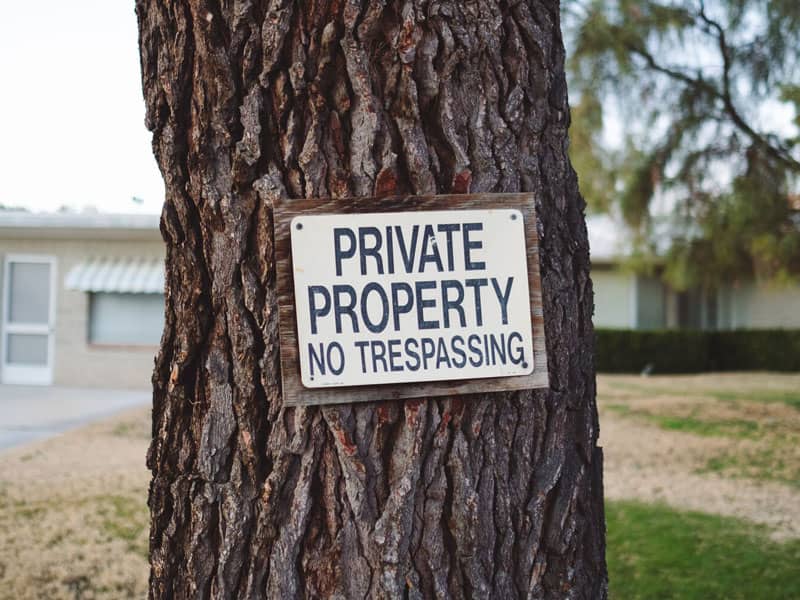
The Role Of HOAs In Maintaining Property Values
HOA backyard rules play a crucial role in maintaining and increasing property values. These rules are designed to promote a harmonious living environment, prevent conflicts between homeowners, and ensure uniformity within the community.
However, some HOA rules can be controversial and potentially affect your property’s value. Understanding the connection between HOA fees, property maintenance, and weight and how violating HOA rules might impact your resale value is essential.
As a homeowner, it’s also essential to know your rights when it comes to challenging HOA rules that negatively impact the value of your property. (Read Pros and Cons of Mixing Bermuda and St Augustine Grass)
How HOA Backyard Rules Maintain And Increase Property Values
Maintaining and increasing property values is one of the key reasons why HOA backyard rules are implemented. HOAs aim to create a uniform and aesthetically pleasing environment by regulating backyard modifications. These rules prevent disparities in property values caused by additions like decks or pools.
Additionally, HOAs can fine homeowners for violating these rules. However, it’s important to note that fines are typically used as a last resort after other enforcement measures have been exhausted.
Controversial HOA Rules That Might Affect Your Property’s Value
Consider the potential impact on your property’s value when evaluating controversial rules the homeowners’ association imposes. It’s essential to thoroughly understand these rules and their implications before purchasing a property in an HOA community.
Controversial rules can vary, but examples include restrictions on backyard modifications, limitations on certain activities, or prohibitions on specific types of landscaping. These rules may affect your ability to personalize your backyard and could potentially limit your property’s market appeal and value.
Understanding the potential impact on your property’s value is crucial. Take the time to review the HOA’s rules and regulations before making a decision. It’s also a good idea to speak with current homeowners in the community to get their perspectives on any controversial rules and how they have affected property values.
The Connection Between HOA Fees, Property Maintenance, And Value
To understand the connection between HOA fees, property maintenance, and value, you should examine how regular upkeep and well-managed common areas contribute to your home’s overall appeal and marketability.
When the HOA maintains and improves shared spaces, it enhances the desirability of the community. This can lead to increased property values over time.
Additionally, well-maintained properties tend to attract more potential buyers and can command higher prices in the real estate market.
How Violating HOA Rules Might Impact Your Resale Value
If you violate HOA rules, it can significantly impact your resale value. The violation may deter potential buyers and see it as a red flag. They might worry about the potential for ongoing conflicts with the HOA or future fines.
Additionally, violating rules could lead to legal action from the HOA, resulting in even more financial consequences. Understanding and complying with all HOA rules to protect your investment is essential.
Your Rights As A Homeowner Against HOA Rules That Negatively Impact Value
Understanding your rights as a homeowner is crucial when dealing with HOA rules that negatively impact the value of your property. Knowing that you have certain rights and protections in these situations is essential. You can request information about the HOA rules and regulations, including any changes or amendments.
You also have the right to attend HOA meetings and voice your concerns or objections. If you believe an HOA rule unfairly affects your property’s value, you may seek legal advice or mediation to address the issue.
Your Legal Rights As A Homeowner In An HOA Community
Are you a homeowner in an HOA community wondering about your legal rights? This discussion will explore critical points, such as whether the HOA can fine you for violating backyard rules. What legal steps to take if the HOA enters your property without consent?
And the limitations of the HOA board over your backyard. It’s essential to know your rights as a homeowner and understand the extent of control the HOA has over every aspect of your backyard. Join us for an informative conversation on these topics.

Can The HOA Fine You For Violating Backyard Rules?
The HOA can impose fines for violating backyard rules. These rules are established to maintain the appearance and harmony of the community. Examples of standard backyard rules include restrictions on fence height, prohibition of pools, and limitations on outdoor clotheslines.
It is essential to familiarize yourself with these rules to avoid potential fines. If you have any questions or wish to make changes to your backyard, it is advisable to contact the HOA for guidance and approval.
Legal Steps To Take If The HOA Enters Your Property Without Consent
If the HOA enters your property without consent, you should consult a lawyer to understand your legal options. They can help you navigate this situation and determine if the HOA’s actions were lawful. Your lawyer will review the relevant state laws, community CCRs, and the Declaration of Covenants to assess whether the HOA had the authority to enter your property. They can advise you on potential remedies or actions you can take to address this violation of your rights.
Know Your Rights: HOA Cannot Enter The Homeowner’s Property Willfully.
Now let’s discuss your rights as a homeowner regarding the HOA entering your property without consent. It’s important to know that the HOA cannot enter your home willfully without permission, except in emergencies. They must follow state laws and the community’s CCRs, which specify their authority to enter someone’s property.
Does The HOA Have The Right To Control Every Aspect Of The Backyard?
Homeowners must understand the extent of the HOA’s control over various aspects of their backyard. The HOA has the authority to establish rules regarding backyard appearance and activities, such as restrictions on fence height and the prohibition of pools.
Homeowners can request changes to their backyard with approval from the HOA. These rules aim to maintain property values and prevent conflicts between homeowners, ensuring uniformity in the community and preventing excessive maintenance burdens.
Limitations Of The HOA Board Over A Member’s Backyard
Remember that the HOA board has certain limitations when controlling what you do in your backyard. While they can establish backyard appearance and activities rules, these rules must align with governing documents and state or county laws.
The HOA’s authority aims to maintain property values and promote harmony among homeowners. However, homeowners can request changes to their backyards through an approval process as long as they meet the guidelines set by the HOA.
Conclusion
In conclusion, it’s essential to understand that HOAs generally have the authority to enter your backyard as long as they follow established rules and regulations. Homeowners must be aware of these rules, such as restrictions on fence height and pool installations, to maintain a harmonious community.
Homeowners can request changes to their backyard, but approval from the HOA is necessary. HOAs aim to protect community assets and promote a sense of community and respect among homeowners by addressing trespassing concerns and building community awareness.

